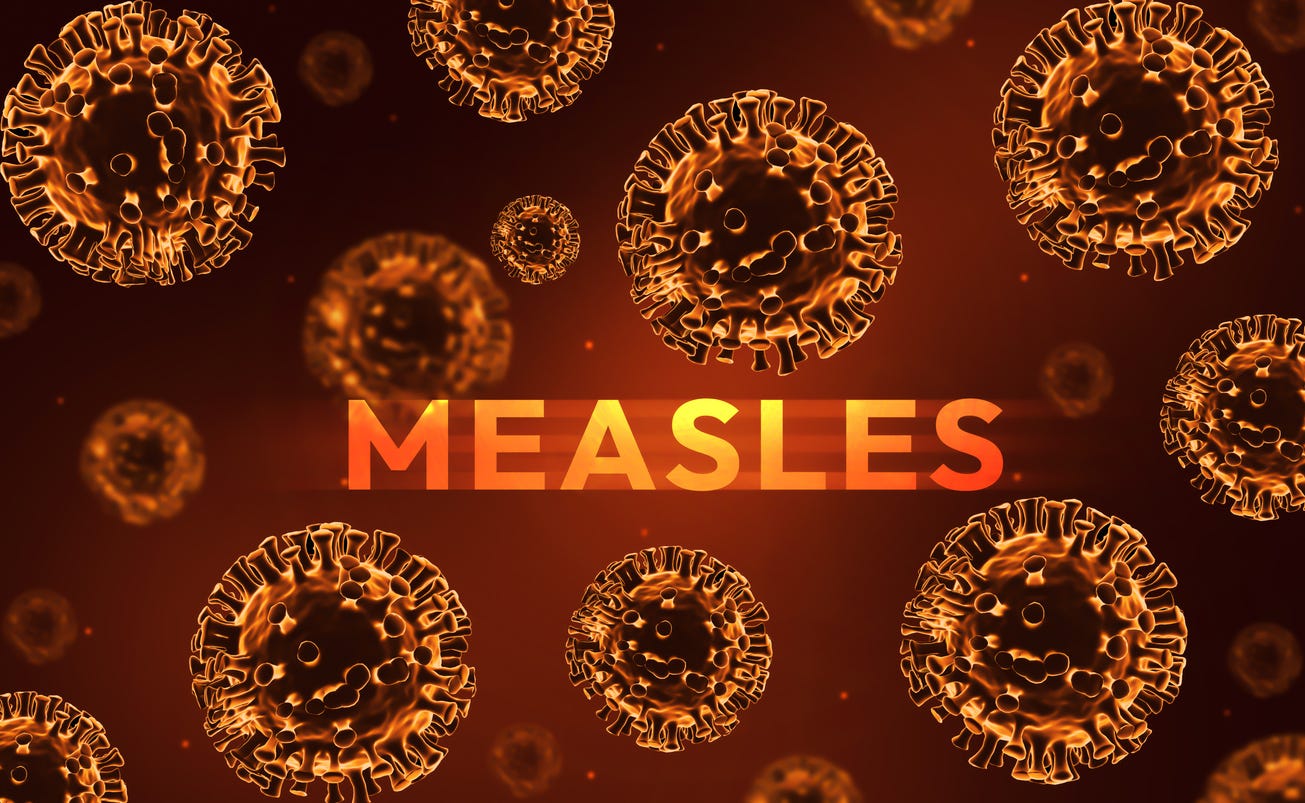Welcome to the One Vax Two Lives Newsletter where we review the latest news on vaccines in pregnancy and answer commonly asked questions. Today, we are answering a question that has been asked a lot in recent weeks.
How do you know if you are immune to measles?
Finding out if you are immune to measles is a good idea if you do not have documentation of a prior measles vaccine (MMR) or are planning to become pregnant or are currently pregnant. Your provider can order tests to determine whether you are immune to measles as part of a routine workup.
There are three ways in which measles immunity can be determined.
Vaccination records.
— In the general population, documentation of one dose of the MMR vaccine is enough to assume immunity.
— High risk individuals (including health care workers, college students, and international travelers) should have documentation of two doses of the MMR vaccine to assume immunity.
Previous measles infection (with documentation of definitive diagnosis). Once someone has been infected with measles, they develop lifelong immunity to the virus. A previous measles infection protects against future measles infection.
Measles antibody test.
For individuals that are unsure about their measles vaccination status or whether they have previously had measles, it is possible to ask your medical provider for a measles antibody test. This is a blood test that measures the level of antibodies to measles, mumps, and rubella. If this test returns positive, this means that you are immune to the measles – either through previous vaccination or infection. If the test is negative, this indicates a non-immune status meaning you have not been previously vaccinated or infected. If your test results indicate immunity, then there is no need to consider further vaccination.
If the test results indicate no immunity to measles, then the steps moving forward will depend on if you are pregnant or not.
Pregnant individuals SHOULD NOT receive the MMR vaccine. The MMR vaccine can then be given immediately after delivery.
Non-pregnant individuals considering becoming pregnant, SHOULD receive the MMR vaccine and then wait 4 weeks to attempt conception.
To learn more about measles in pregnancy, you can refer to the following sources.
Measles cases in the US are rising
The U.S. Centers of Disease Control report that as of March 27 there have been 483 confirmed measles cases in 20 US states. 93% of these cases have been associated with 5 large outbreaks, including one outbreak which has so far been associated with 453 cases in Texas, New Mexico, and Oklahoma as of March 27. An outbreak is any event where 3 or more cases of an infectious disease are related to each other. Outbreaks occur when highly contagious diseases such as measles are introduced to populations with low rates of immunity. Communities with low vaccination rates are particularly susceptible to outbreaks of infectious diseases. 97% of measles cases this year have been in individuals who are unvaccinated or whose vaccination status is unknown.
Sources:
https://www.cnn.com/2025/03/28/health/measles-outbreak-crosses-450-cases/index.html
Our Resources
Go to the One Vax Two Lives website to learn more about our work and publications, access our trifold brochure, and read FAQs.
If you know someone who would like to receive our newsletter in their inbox, please share this post by clicking below. You can even share this post on social media.
Happy sharing!
Still have questions? Send us a message or a question in our Substack Chat - join here!
onevaxtwolives.substack.com/chat











Answer: there is nothing to be immune to.